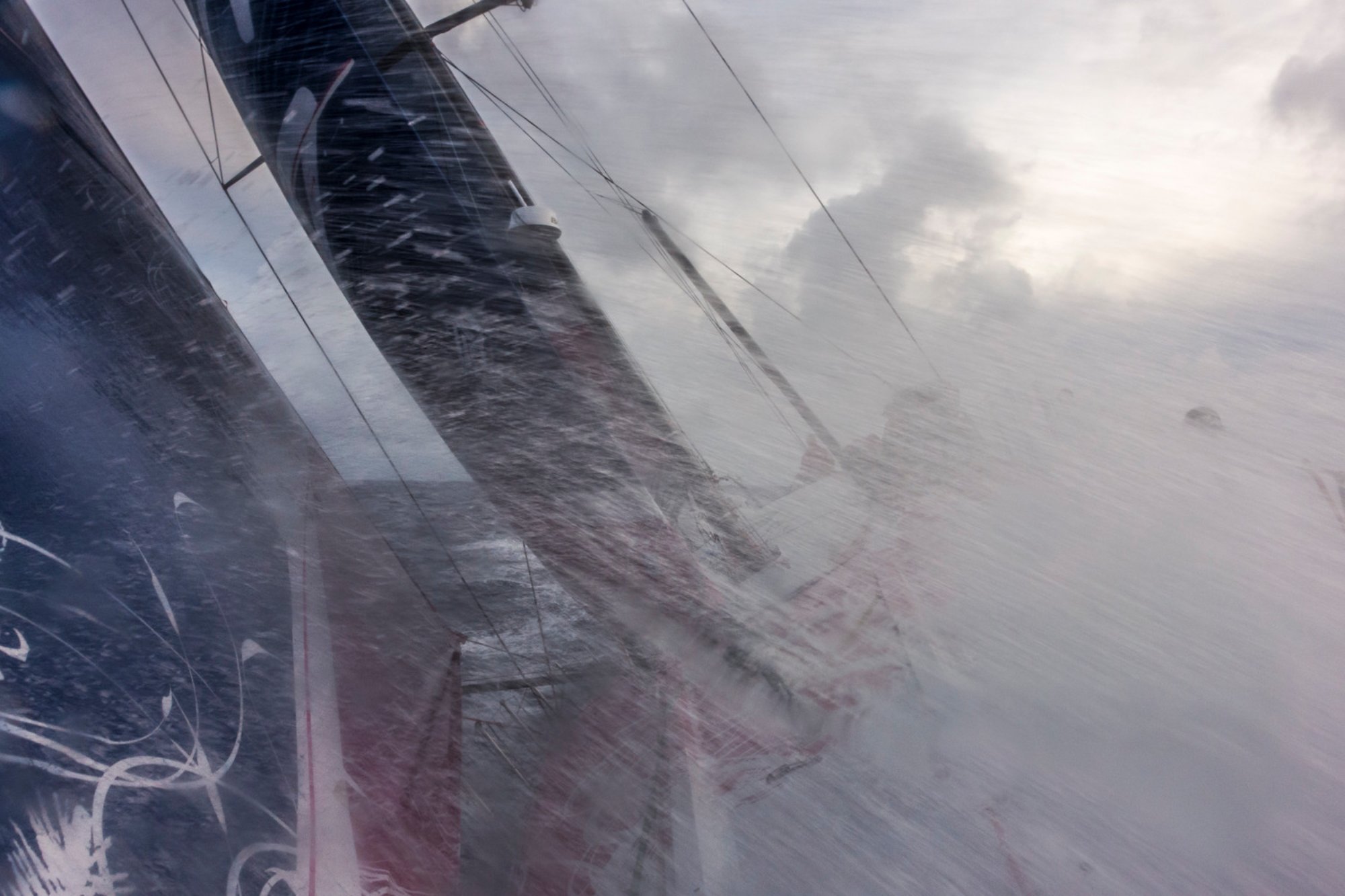
There are many similarities between the Volvo Ocean Race and modern global business. Companies can use the event and the athletes as a platform to drive conversation and change around topics such as leadership, sustainability, teamwork and personal development. Here’s a blog I put together on how stress can affect you when you’re 2,000 miles land, in the Southern Ocean.
Stress is a big part of every ocean sailor’s daily life – whether you’re sailing for a record, or racing to the finish line. And it’s never more apparent than in the Volvo Ocean Race – an event that makes incredible demands on the athletes, with legs from a few days to six weeks.
The fact that you’re racing flat out, 24 hours a day while the boats are at sea, demands 100% commitment. You simply have to put everything – physically, and emotionally – into this race, just to survive it. It’s not just about results, it’s about managing the expectations of the people around you, family, friends, and sponsors, so that they can begin to understand what’s to come.
In the conditions faced by these sailors, the immediate response may be the fight or flight reaction – a rush of adrenaline – but ask anyone who’s taken part in this adventure, and they’ll tell you that part of the thrill of doing the Volvo Ocean Race is the feeling that you’re truly living life on the edge.
So how do you manage the inevitable stress?
I think that the inclusion of other halves and wider family is really important, as they need to sign up to this commitment alongside you – it makes the stress much easier to manage!
You commit to the race and expect to deliver, and when factors beyond your control influence your aspirations, it can leave you traumatised. The lack of control over these factors – from illness to injury, equipment breakages or simply bad luck – can create high stress levels which can eat away at you, and affect those close to you.
Of course, stress can also be exacerbated by poor performance. Expectations run high and everyone wants to be able to celebrate success. We all measure success by different means, but in the Volvo Ocean Race, it’s pretty simple. There’s no hiding a poor performance.
We all measure success by different means, but in the Volvo Ocean Race, it’s pretty simple. There’s no hiding a poor performance.
This adds stress to the sailors and the shore team around them. Careful management can allow a team to dissect performance, understand failures and learn from mistakes in order to constantly improve. This takes strength of character and an open and honest environment to thrive from failures and use them to improve. It’s a strong team that can perform in such a manner.
Demands aren’t just made on performance, but also by those not directly involved on the water. Those funding the teams must meet demands too. They’ll want to show returns on investment and objectives in order to justify the initial investment in the first place. They need to deliver to shareholders, stakeholders, consumers, customers and employees.
This, ultimately, filters through to the sailors – and it can be difficult to not let this to distract your focus, which ultimately should be the race itself. Along with personal factors beyond your control are also the factors affecting equipment onboard. Breakages and unforeseen system failures are frustrating when they happen, but also impact on the stress levels of the shore teams, who manage the preparation of the boat. If at sea when these things occur, and they’re a potential race-stopper, then the pressure is on communication, in order to give the sailors the correct instruction to make repairs out on the ocean. These are often non-specialist people following instructions, and making the best of a bad time and place to get the job done, in highly-pressured circumstances.
Ultimately, the Volvo Ocean Race requires sailors to push themselves – and their equipment – to the limit, and beyond. It’s not just the pressure of the racing, but the testing conditions, extreme weather, not to mention the crew living in such cramped, close proximity to each other, in an environment of heightened emotions and even higher performance.
Those who manage that stress in the right way, without hindering performance, will be a big step closer to winning the Volvo Ocean Race and getting their hands on the prestigious trophy – making all the effort and hard work worthwhile.